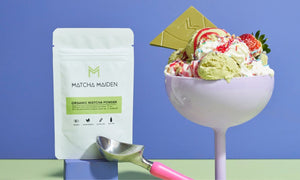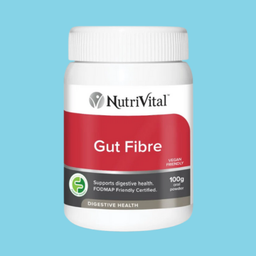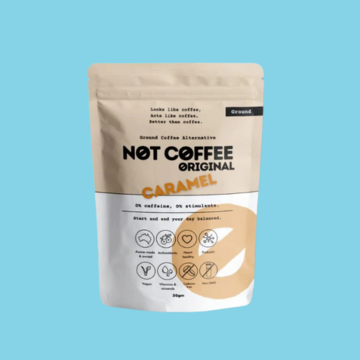Written By  Go Vita
Go Vita
Understanding the Keto Diet
What is the Keto Diet and how does it work? Most importantly, could it be the right weight loss program for you?
A ketogenic diet means that you reduce the amount of carbohydrates you eat, and avoid starchy vegetables and fruits. In addition, you eat a moderate amount of high quality protein, like lean meat and salmon, and increase the amount and type of fats you eat, especially nuts and oils that are rich in ketogenic medium-chain triglycerides (MCTs).
MCTs help the body to break down fat in the liver, creating metabolic by-products called ketones, such as beta-hydroxybutyrate (BHB), that put the body into a state of ketosis, in order to produce energy.
Achieving ketosis
The principal driver behind the diet’s philosophy is that, by depriving the body of carbohydrates, it is forced to burn fat for energy, as opposed to eating carbohydrate-rich foods which the body uses to make glucose and then burns that for energy. Since glucose has the quickest uptake into the cells, it is ordinarily the body’s first choice for energy, rather than stored fat.
There are different versions of the Keto Diet, but the general aim is to strictly reduce the amount of carbohydrates you eat, to around 10 percent or less of total daily calories. Fiber-rich vegetables should make up most of the carbohydrate content. Dietary protein content should be around 20 to 30 percent, and the most daily calories – between 40 and 75 percent – should come from fats.
Adherents of the Keto Diet often report that, in addition to experiencing quite rapid weight loss, they rarely feel hungry or experience cravings for sweets or carbohydrates, and they also enjoy increased mental acuity and focus and more and longer-lasting physical energy, improved athletic performance and recovery times, especially during endurance training. It is possible that the Keto Diet may be of particular benefit to diabetics, with a scientific review showing that it has the potential to lower blood sugar levels and reduce the amount of medication for type 2 diabetics.
Occasional side effects may include headache, dizziness and stomach upsets, such as constipation; however, these may be minimized or avoided altogether by increasing the intake of dietary fat gradually, rather than all at once. Some health experts advise that the Keto Diet may not be the best choice for people with elevated cholesterol or other heart disease risk factors, due to the potential for high intake of saturated fat from animal products; however, this is easily resolved by using a plant-based fat source, such as coconut oil-derived products, which provide a rich source of MCTs.
Increasing MCTs
It is easy to up the MCT content of your diet.
Simplest of all is to use MCT oil to make your salad dressing, which also helps with nutrient absorption from your salad greens. Try a blend of creamy mashed avocado, lime juice, a few drops of chili oil, sea salt, crushed garlic and pepper with MCT oil – whiz the whole lot in your food processor, and adjust oil and juice to create the consistency you prefer. Or, experiment with combining soy-based mayonnaise, MCT oil, seeded mustard, apple cider vinegar and perhaps a splash of Worcestershire sauce.
Another idea is to add MCT oil to your morning smoothie or latte; as a plus, you will feel full and satisfied right through until lunch. Shake up (pun intended) your usual smoothie blend with coconut milk, MCT oil, natural vanilla essence and stevia. Make an aromatic dandelion coffee ‘shot’ and add that as well. Or, try your hand at using MCT oil in no-cook bliss balls and other healthy bite-sized snacks like gummies, or ‘bulletproof coffee’: a blend of black coffee, butter or ghee and MCT oil, it’s a great carb-and sugar-free kickstart for your morning.
Information presented is for information purposes only and is not intended to replace advice or treatment from qualified healthcare professionals. The information is not intended to treat or diagnose. Always consult your healthcare professional before taking nutritional or herbal supplements. If you are pregnant, breastfeeding, have any allergies or diagnosed conditions, or are taking prescription medications, always consult your healthcare professional before taking nutritional or herbal supplements.
Binge Read on these

Matcha Ice Cream
Cool down the natural way with this Matcha Ice Cream by Matcha Maiden.
101-Matcha-Benefits

Dubai Coconut Collagen Chocolate Bark
Indulge in this Dubai Coconut Collagen Chocolate Bark made with Nutraviva Collagen Hydrolysate.

Empowering Women: Navigating Perimenopause and Menopause

Matcha Ice Cream
Cool down the natural way with this Matcha Ice Cream by Matcha Maiden.
101-Matcha-Benefits

Dubai Coconut Collagen Chocolate Bark
Indulge in this Dubai Coconut Collagen Chocolate Bark made with Nutraviva Collagen Hydrolysate.

Empowering Women: Navigating Perimenopause and Menopause

